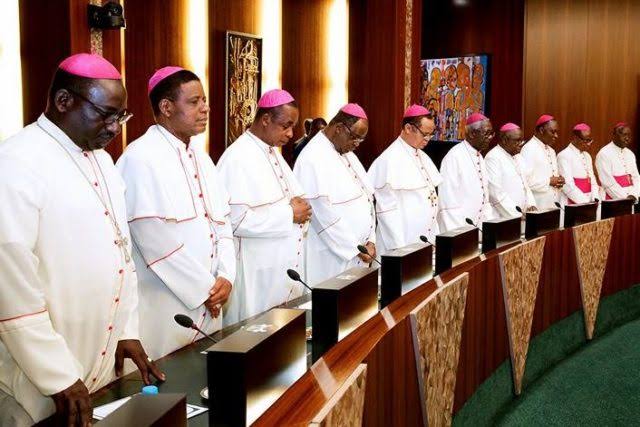The Catholic Bishops Conference of Nigeria (CBCN), in a recent communiqué, has expressed grave concerns about the trajectory of Nigerian democracy, warning of a potential descent into a one-party state. The bishops, observing the political landscape, have identified a troubling trend of political maneuvering and power consolidation that they believe threatens the foundations of democratic governance. They argue that the current political climate, characterized by a relentless pursuit of power and a suppression of dissenting voices, is creating an environment ripe for authoritarianism. This, they warn, is a dangerous development that could erode the hard-won gains of democracy and plunge the nation into political instability.
A central concern of the bishops is the apparent obsession of politicians with the 2027 general elections, years before they are due to take place. This preoccupation, they contend, has diverted attention from the urgent needs of the citizens and has fostered a culture of self-serving politics. Instead of focusing on delivering good governance and addressing the myriad challenges facing the nation, politicians are allegedly engaged in strategic maneuvering, forming alliances, and defecting between parties, all in an attempt to secure political advantage. This, the bishops argue, demonstrates a disregard for the welfare of the people and undermines the very purpose of public service.
The bishops have also criticized the apparent suppression of opposition voices, suggesting that Nigeria is moving towards a one-party system. This, they believe, stifles healthy political debate and limits the ability of citizens to hold their leaders accountable. A vibrant democracy, they argue, requires a robust opposition to challenge the ruling party and ensure that different perspectives are represented in the political process. The suppression of opposition, therefore, represents a serious threat to the democratic ideals of pluralism and freedom of expression. They see this as a dangerous precedent, one that could lead to the erosion of democratic norms and the concentration of power in the hands of a few.
Furthermore, the CBCN has expressed dismay at the rampant corruption and inefficiency that they believe is fueled by this intense competition for political power. The pursuit of power, they argue, has become an end in itself, and politicians are allegedly resorting to corrupt practices to achieve their goals. This, in turn, has led to a neglect of public services and a decline in the quality of life for ordinary Nigerians. The bishops argue that this focus on personal gain over public service is eroding the trust between the government and the governed, a trust that is essential for the proper functioning of any democracy.
Looking ahead to the 2027 elections, the bishops have called for significant electoral reforms to ensure the integrity of the voting process. They have specifically demanded electronic transmission and collation of results in real time, a measure they believe will enhance transparency and reduce the opportunities for manipulation. This, they argue, is crucial for building public confidence in the electoral system and ensuring that the will of the people is truly reflected in the outcome of the elections. They also emphasize the importance of an impartial judiciary in adjudicating electoral disputes, highlighting the role of a fair and independent judiciary in maintaining stability and upholding the rule of law.
In summary, the Catholic Bishops of Nigeria have issued a stark warning about the state of Nigerian democracy. They have identified a number of concerning trends, including the prioritization of power over governance, the suppression of opposition voices, and the prevalence of corruption. They believe that these factors are pushing the nation towards a one-party state, a scenario they warn would be detrimental to the democratic process. Their call for electoral reforms and an impartial judiciary underscores their commitment to ensuring a free, fair, and credible electoral process, which they believe is essential for the future of democracy in Nigeria. They urge politicians to prioritize the welfare of the citizens and to work towards building a more inclusive and just society.


